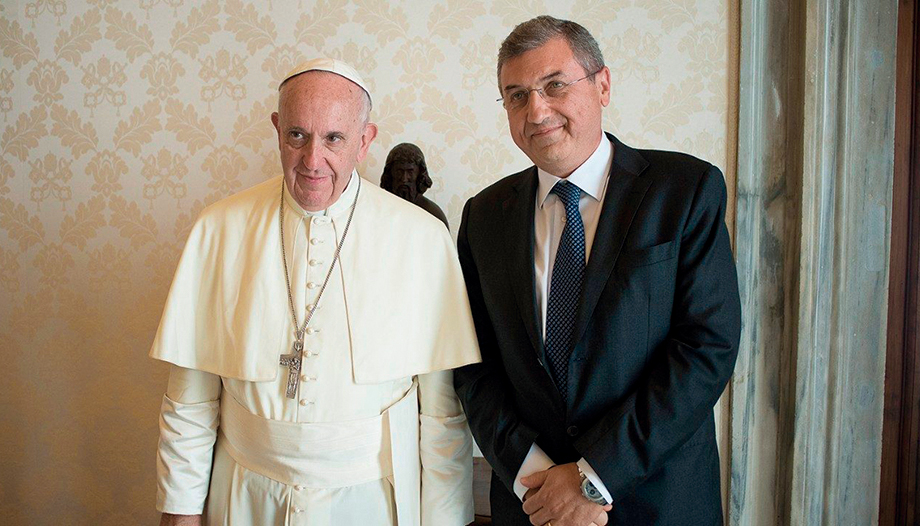The rector of the Lateran University, Vincenzo Buonomo, offered us some reflections on this initiative for education, which is so important to Pope Francis and which we have presented in the previous pages.
Rector Buonomo, as an educator, what challenges you most about the Global Compact?
-The Pope's desire is to build a "global village of education" capable above all of constituting a network of relationships and dialogue between the various educational bodies: the family, the school, the Church, the university, politics and institutions.
As educators, the Pact requires us to develop a vision that sees education as part of a universal solidarity and to assume a dual responsibility: to make training places capable of educating, and not just providing concepts, and to build a culture of integral education that overcomes the fragmentation and counterpointing of knowledge, restoring full confidence in research as the basis of teaching.
Professor, the Pope speaks of an "educational catastrophe" also as a consequence of the pandemic. How to face this growing scenario of social gap and cultural inequality?
-I will borrow the image evoked by the Pope in the recent Encyclical Brothers AllThe stranger in the street. Everyone avoids him, out of convenience, distrust or indifference. The Samaritan - who, curiously enough, is also a "stranger" because of his context - stops and does his part, that is, acts. It would be easy to say that it is a matter of lived charity or philanthropy or compassion, when, in fact, we are dealing with a choice, that of acting in a concrete situation, without a motivation: it is the idea of gratuitousness, which is the continuation of solidarity.
In this way, the educational instances must operate by "taking charge" of reality, following effective therapies for each diagnosis. In this path, the University assumes an important responsibility.
Despite covid19, the planning of initiatives linked to the Pact has not been interrupted; the theme of peace and citizenship has been entrusted to the Lateranense. How do you plan to develop it?
-First of all, as an institution of the Holy See, we initiated a collaboration, following the indications of the Congregation for Catholic Education, with the United Nations University for PeaceThe UN is a UN agency for the training of personnel in the service of peace missions and conflict prevention and resolution activities.
Following the signing of an agreement between the two university institutions on October 31, 2019, a first research path on the themes of the "diplomacy of art" was launched. Subsequently, the deepening and study of the positions of the Church's magisterium on peace, one hundred years after the first encyclical on the subject, began, Pacem dei munus of Benedict XV. A research oriented to understand the comparison, the sequel and the effects of the studies and teachings on peace, on the juridical-political processes at the international level and on the process of institutionalization of the international community for the prevention, regulation and resolution of conflicts.
Since 2018, a Cycle of studies on these fields has been taught at your University. Who is it aimed at and what are the perspectives from a pastoral and professional point of view?
-The training course (diploma and degree) was established in 2018 by Pope Francis with the aim of training international officials and mediators, future diplomats, peacemaking experts, operators in post-conflict scenarios, those responsible for the Third Sector, pastors and religious who live their ministry in war scenarios.
On the academic side, this means the study of theories and intervention tools to ensure the affirmation of a culture of peace that is the result of the convergence of means, elements, methods, notions and theories to prevent and resolve conflicts.
We believe that this academic proposal, which is structured on the so-called peace sciencescan help the younger generations to understand that peace is not only or the opposite of the absence of war, but the fruit of effective processes, of "artisanal transformations carried out by villages". (you remember Brothers All), in which everyone is called to give proof of selfless love, responsibility and efficiency.











